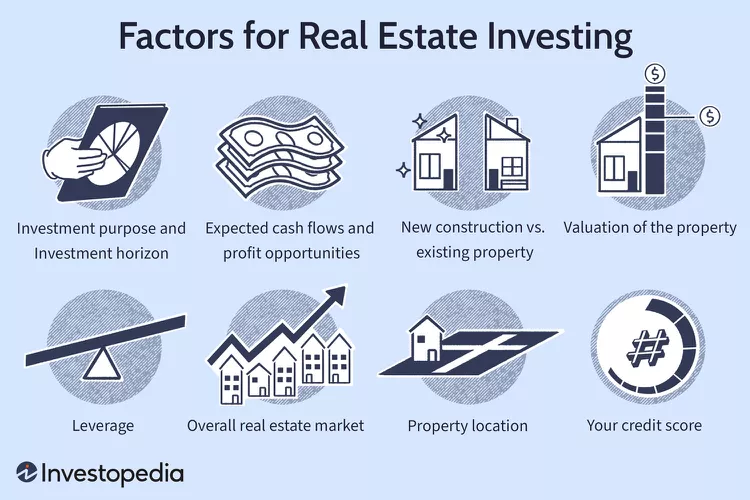Introduction: Real estate investing has long been considered a reliable and lucrative way to build wealth over time. From generating passive income to leveraging property appreciation, the world of real estate presents promising opportunities for newcomers looking to enter the investment market. If you’ve been intrigued by the idea of becoming a real estate investor but don’t know where to start, this blog will serve as your essential guide to taking those first steps toward a successful real estate venture.
- Educate Yourself: Before diving into the world of real estate investing, it’s crucial to arm yourself with knowledge. Read books, attend seminars, listen to podcasts, and explore reputable online resources to gain a fundamental understanding of the industry. Learn about different investment strategies, property types, financing options, and the local real estate market.
- Set Clear Financial Goals: Establishing clear financial goals is a pivotal first step. Determine what you want to achieve with real estate investing – whether it’s long-term wealth building, generating passive income, or funding your retirement. Having a defined objective will help you stay focused and make better investment decisions.
- Assess Your Finances: Take a close look at your financial situation and evaluate how much capital you can invest comfortably. Real estate investments often require significant upfront costs, so it’s essential to have a solid understanding of your financial position and how much risk you are willing to take.
- Choose Your Investment Strategy: Real estate investing offers a myriad of strategies to suit individual preferences and risk profiles. Some common approaches include:a. Rental Properties: Purchasing residential or commercial properties and renting them out for steady rental income. b. Flipping Houses: Buying distressed properties, renovating them, and selling them at a profit. c. Real Estate Investment Trusts (REITs): Investing in publicly traded companies that own and manage real estate properties. d. Real Estate Crowdfunding: Participating in real estate projects with other investors through online platforms.
- Research Local Markets: Location is a crucial factor in real estate investing. Conduct thorough research on your target market, focusing on factors such as population growth, job market, rental demand, and potential for property appreciation. Networking with local real estate professionals can provide valuable insights into the market conditions.
- Build a Strong Support Team: Real estate investing often involves legal, financial, and property management complexities. Surround yourself with a team of professionals, including real estate agents, attorneys, accountants, and property managers, who can provide guidance and expertise throughout your journey.
- Secure Financing: Unless you are buying properties with cash, you’ll need to secure financing. Explore different mortgage options, interest rates, and loan terms to find the best fit for your investment strategy.
- Start Small and Scale Gradually: As a newcomer, it’s wise to start with smaller, less risky investments. Avoid taking on too much debt or committing to high-cost properties until you gain more experience and confidence in the market.
- Stay Committed and Patient: Real estate investing is a long-term game. Success may not happen overnight, but staying committed and patient will increase your chances of reaping the rewards of your investments in the long run.
Conclusion: Entering the world of real estate investing can be both exciting and rewarding, especially for those willing to put in the effort to learn, plan, and execute their strategies wisely. Remember that education, research, and a clear vision are the keys to building a successful real estate portfolio. As you navigate this journey, seek guidance from experienced investors, learn from your experiences, and never stop expanding your knowledge. With dedication and perseverance, you’ll be well on your way to creating wealth through the power of real estate investing.

